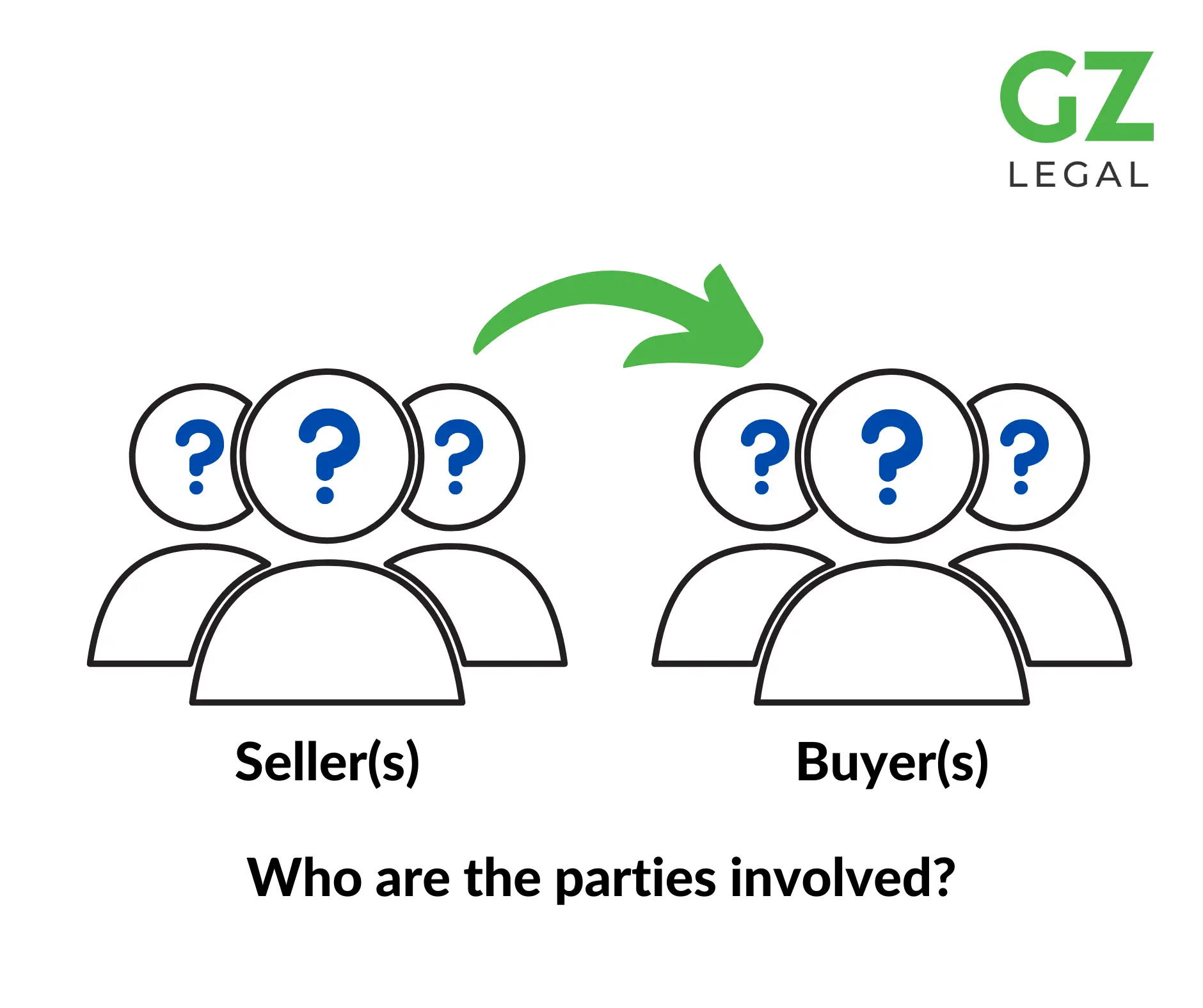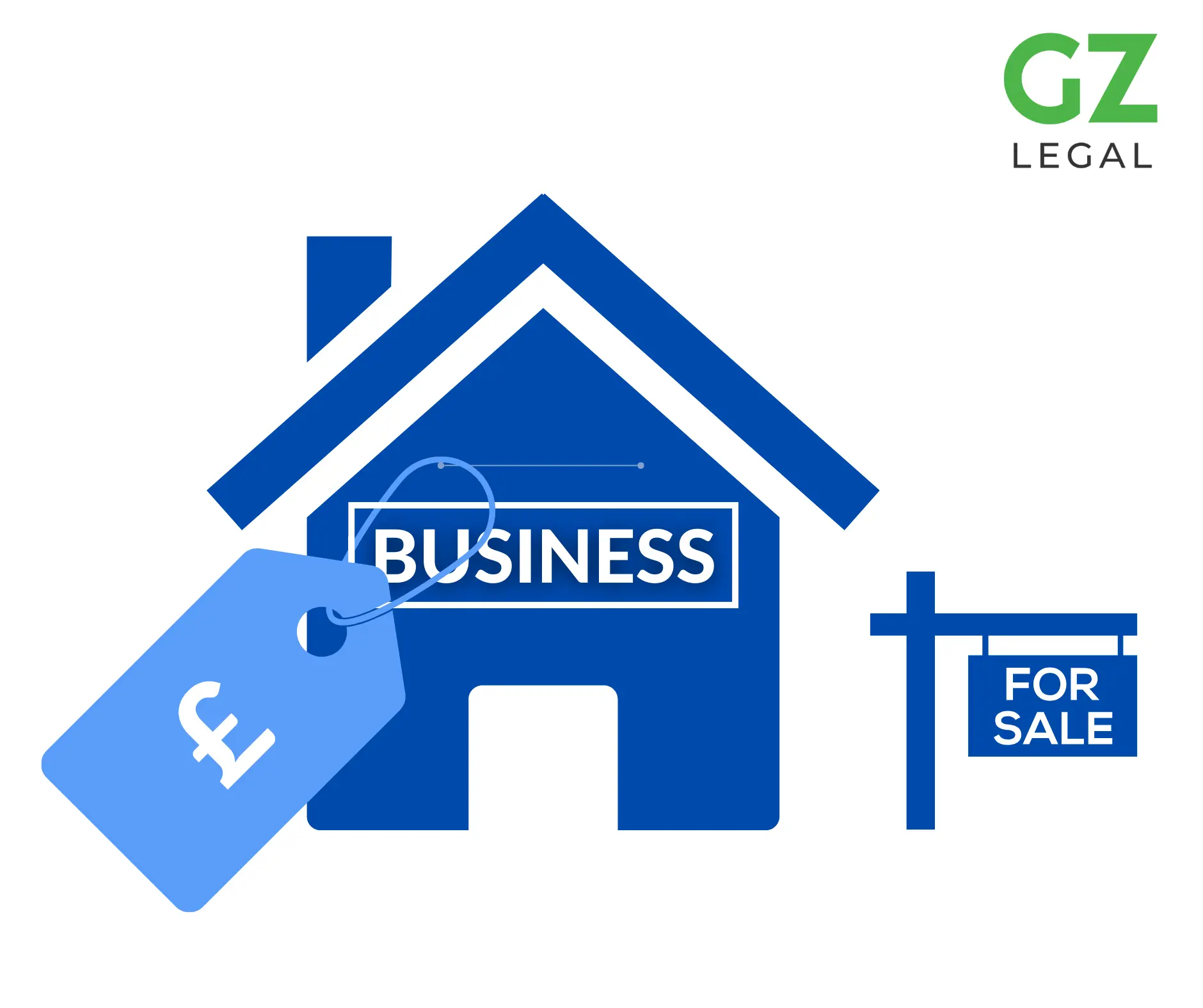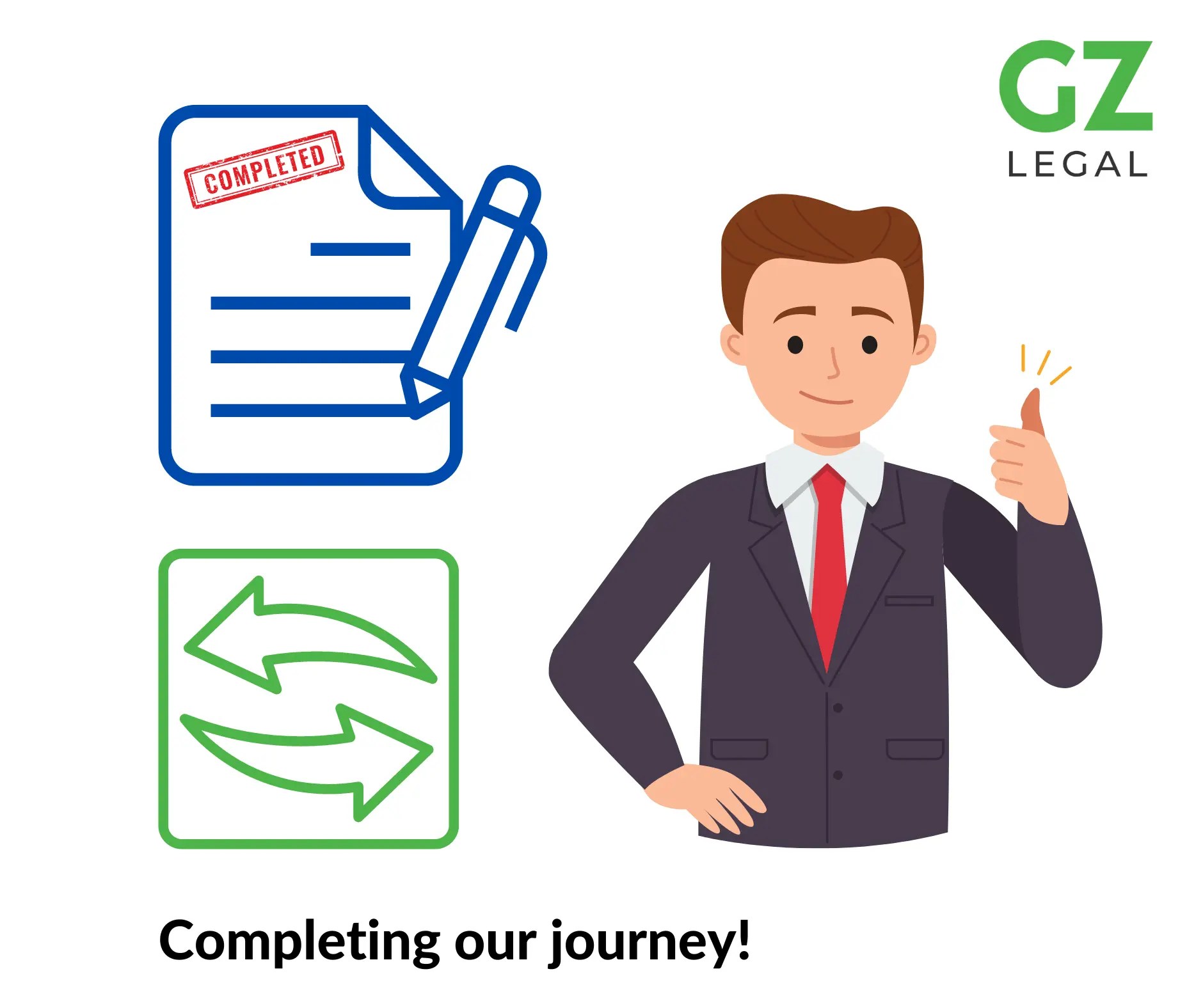Malcolm ZoppiSun Oct 15 2023
5 Things to Include in a Business Purchase Agreement
Read this short guide to find out about which essential elements to include in any business purchase agreement.
Entering into a business purchase agreement is like embarking on a journey. It’s a path that requires careful navigation, with clear destinations marked out along the way. Each clause, each article, each provision is a stepping stone that helps ensure a smooth transition from the seller to the buyer. Let’s dive into this journey together, understanding what to include in a business purchase agreement and each stop along the way.
Short Summary
- Identify the parties in a business purchase agreement.
- Understand what is actually being transferred from the seller to the buyer.
- Establish the purchase price and payment terms.
- Include protections such as warranties, indemnities & restrictions.
- Closing the deal smoothly for a successful ownership transfer.
Identifying the Parties

Imagine embarking on a journey without knowing your travel companions. Sounds risky, right? The same goes for a business purchase agreement. The first stop on this journey requires us to clearly identify both the seller and the buyer as our travel companions, with the seller being the business owner.
When we talk about a purchase of business agreement, we are essentially referring to a legally binding document that outlines the specifics of a business sale, also known as a sale and purchase agreement, which can take the form of an asset purchase agreement or a share purchase agreement. In a share sale, the seller will be the owner(s) of the sale shares, whereas in an asset sale, the seller will usually be the company which owns the assets.
Identifying the parties in a business agreement purchase is like putting a name tag on your travel companion. It includes their legal names, mailing addresses, and entity types (whether they are a person, a limited company, an PLC, or a partnership. A free business purchase agreement template can be a helpful starting point in drafting this crucial legal document, although you should always consult with professional acquisition lawyers to help navigate you through the process.
The importance of correctly identifying the parties extends beyond just names and addresses. It’s about understanding who they are, what they represent, and their legal standing. This information is usually detailed at the start of the business purchase agreement, specifying the commitments imposed on the buyer and seller, and providing the formal name of the business being sold, its legal address, and the country of incorporation.
In essence, identifying the parties in a business purchase agreement is not just a mere formality. It’s a crucial step that sets the tone for the entire agreement.
Asset and Liability Inclusions and Exclusions
The next stop on our journey is understanding what we are actually buying or selling. Just like you would want to know what’s included in your travel package, in a business purchase agreement, you need to know which assets and liabilities are included and excluded in the sale. In a share purchase agreement, the only thing being bought are the shares of the company on offer. However, things aren’t as straightforward in the case of an asset sale, and you may have the opportunity to cherry pick specific assets and liabilities to suit your needs.
Physical assets could include anything from buildings, equipment, and inventory, to financial assets such as cash reserves, debtors, and investments. Intangible assets, on the other hand, could include brand recognition (or goodwill), trademarks, patents, copyrights and other intellectual property.
But a business is not just about assets. It’s also about liabilities, which can range from creditors, outstanding loans, and environmental liabilities, to obligations in existing contracts. These are like the baggage that comes with your travel package. And just like how you would want to know what baggage you are carrying, you need to know what business liabilities are included in the sale.
On the date of completion of an asset acquisition, the seller hands over all of the business’ assets and liabilities to the buyer. This signifies the business changing hands from the seller to the buyer. But not all assets of the business entity are always included in the agreement and these are usually documented on the “Excluded Assets” line. It’s like knowing that certain amenities are not included in your travel package.
So the second stop of our journey, asset and liability inclusions and exclusions, is about understanding what’s included in our travel package and what’s not. It’s about knowing what we are carrying into our journey and what we are leaving behind.
Purchase Price and Payment Terms

Now, let’s move on to our next stop – understanding the purchase price and payment terms. The cost of the business, the method of payment, tax obligations, and any other relevant financial matters should be included in the agreement. It’s like knowing the total cost of your journey and how we are going to pay for it, including all the hidden charges.
The division among assets (in an asset purchase agreement) and any modifications based on due diligence discoveries are like knowing how the ticket price is split among various components of your travel package and if there are any last-minute changes based on the final itinerary. Purchase price adjustments, which may consider the fair market value and any business records, refer to any changes that may be made to the purchase price at completion to account for any discrepancies between the time the agreement was signed and the completion date.
Acceptable payment methods in a business purchase agreement could include cash, shares, loan notes or some other arrangement. This may be paid in full on completion, or the parties could agree that some is deferred until a later date.
Warranties, Indemnities, and Restrictions

Warranties
As we continue our journey, let’s stop at warranties, indemnities, and restrictions. This stop is about assurances and protection; like having a travel insurance policy for your journey. Warranties are a statement of fact about the condition of the business given by the seller to the buyer. The buyer can insist on the inclusion of warranties to elicit more information about the business, which can be used as a powerful negotiating tool as they may force the seller to disclose certain issues about the business.
The disclosure letter, issued by the seller and addressed to the buyer, outlines applicable matters pertaining to the warranties, duly qualifying them. Imagine a travel advisory issued by your travel agent, informing you of any potential risks or issues with your journey. These could include warranties from the seller relating to the business, which if later found to be untrue, would provide the buyer with a remedy against the seller.
Indemnities
Indemnities are a promise for one party to reimburse another party if a specified event happens. For example, the seller might give an indemnity to reimburse the buyer in the event that a disgruntled employee later makes a claim against the company post-acquisition. Indemnities, therefore, provide the buyer with an added layer of protection in a business purchase agreement.
Restrictions
Restrictions can take many forms in a business purchase agreement. A non-compete clause, for example, is like an agreement between you and your travel companion that you won’t go on a similar journey with someone else. It stipulates whether the seller agrees to be restricted from participating in a comparable or competing business once the business is sold. The seller should also be obligated to not capitalise on their knowledge of the business to create an unbalanced level of competition on the market after the sale. This situation is covered by a confidentiality clause. It’s like agreeing with your travel companion that they won’t use their knowledge of your travel preferences to plan a similar journey with someone else.
Completion and Transfer Process

The last stop on our journey is understanding what happens on completion and effecting the transfer process. This is about knowing how our journey ends and how we arrive at our destination. The date of the agreement or an alternative time agreed upon by both parties is the definition of the completion date. Including a completion procedure and transfer process provisions in a business purchase agreement is essential to ensure the successful transfer of ownership of the business with the necessary documentation and to avoid potential issues in the future. It’s about ensuring that your travel itinerary is well-planned and well-executed.
A conditions precedent is often required for an orderly transaction to happen. These conditions stipulate certain events that must take place, and may involve either the buyer or the seller, before the deal can go ahead. It’s like making sure that all pre-trip arrangements, like visa processing and hotel booking, are completed before your journey begins.
The business purchase agreement can be signed by the parties either remotely or at a meeting in person, ensuring that the correct legal procedure is always strictly followed.
Summary
So, we’ve reached the end of our journey. We started with understanding the importance of correctly identifying the parties in a business purchase agreement. We then moved on to understanding what assets and liabilities are included and excluded in the sale. We learned about the purchase price and payment terms, how the price is allocated among assets, and any adjustments based on due diligence findings.
We also discussed the significance of warranties, indemnities, and restrictions, and how they provide assurances and protection for both parties. Finally, we ended our journey by understanding the importance of detailing the completion procedure and how to transfer ownership of the business for a smooth transition from the seller to the buyer.
It should be noted however, that these are only some of the more important parts of a business purchase agreement, and you should speak to a professional advisor before embarking on this journey yourself.
Our journey through a business purchase agreement, much like any other journey, was about understanding the details, preparing for contingencies, and ensuring a smooth transition. It was about knowing what we are getting into, what we are taking with us, and what we are leaving behind.
Frequently Asked Questions
How much does a business purchase agreement cost?
A business purchase agreement should be handled by specialist acquisition lawyers, who will be able to draft and negotiate the agreement on your behalf.
Typically, solicitors will charge between 1% and 2% of the value of the deal, but this is not set in stone, and the figures can depend on the complexity of the acquisition and the level of due diligence involved. There are many affordable legal services out there, but it is worth investing time to find the right lawyers for you.
You can read more about legal fees and the wider costs involved in buying a business here.
What is included in the purchase agreement?
A purchase agreement typically includes information regarding both parties, the property being sold, the price of the property and payment terms, as well as other transactional terms, implementation procedures and termination provisions.
It is essential to engage a professional in order to create a thorough agreement and highlight all the contractual obligations on the parties post-sale.
What financial terms should be included in a business purchase agreement?
Financial terms such as the purchase cost, payment terms and timeline, post-purchase consideration, tax responsibilities and any other associated expenses should be clearly outlined in a business purchase agreement.
Find out more!
If you want to read more in this subject area, you might find some of our other blogs interesting:
- Step-by-Step Guide on How to Transfer Shares to a Holding Company
- Breach of Settlement Agreement: Consequences and Remedies Explained
- Who Gets the Money When a Company is Sold?
- What is a Counter Offer in Contract Law? Explained Simply and Clearly
- Understanding the Costs: How Much Do Injunctions Cost in the UK?
This document has been prepared for informational purposes only and should not be construed as legal or financial advice. You should consult with appropriate professionals before buying a business. Additionally, this document is not intended to prejudge the legal, financial or tax position of any person buying a business.
